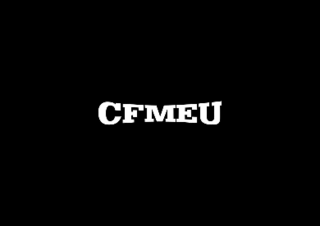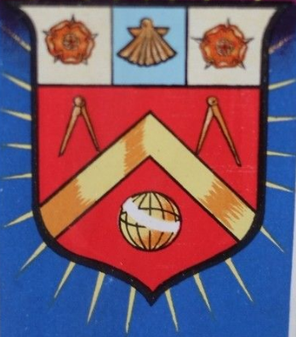
Anthony Woodley, Baron Woodley is a British trade unionist who was the Joint-General Secretary of Unite, a union formed through the merger of Amicus and the Transport and General Workers' Union, from 2007 to 2011. Despite stepping down as Joint-General Secretary, he remained as the Head of Organising for Unite until December 2013 and is still a consultant to the union. He was previously the General Secretary of the Transport and General Workers union (T&G) from 2004 to 2007.
In British politics, an affiliated trade union is one that is linked to the Labour Party. The party was created by the trade unions and socialist societies in 1900 as the Labour Representation Committee and the unions have retained close institutional links with it.

The Transport and General Workers' Union was one of the largest general trade unions in the United Kingdom and Ireland – where it was known as the Amalgamated Transport and General Workers' Union (ATGWU) to differentiate itself from the Irish Transport and General Workers' Union – with 900,000 members. It was founded in 1922 and Ernest Bevin served as its first general secretary.

Eric "Ricky" Tomlinson is an English actor. He is best known for his television roles as Bobby Grant in the soap opera Brookside (1982–1988), DCI Charlie Wise in Cracker (1993–2006) and Jim Royle in The Royle Family (1998–2012). He also played the titular character in the 2001 football mockumentary Mike Bassett: England Manager.
The Workers' Union was a general union based in the United Kingdom, but with some branches in other countries. During the 1910s, it was the largest general union in the UK, but it entered a rapid decline in the 1920s, and eventually became part of the Transport and General Workers' Union (TGWU).

The Construction, Forestry and Maritime Employees Union (CFMEU) is the largest union in construction, forestry, maritime, textile, clothing and footwear production. The CFMEU is affiliated with the Australian Council of Trade Unions and the Australian Labor Party.

James Larkin Jones, known as Jack Jones, was a British trade union leader and General Secretary of the Transport and General Workers' Union.
The Community and Youth Workers Union (CYWU) was a British trade union created in 1938 by ten female voluntary sector workers. It is now a section of Unite the Union. Its members were mainly made up of youth workers, workers in youth theatre, community education, outdoor education, play workers and personal advisers/mentors.
Des Warren was a British construction worker, trade union activist and – with Ricky Tomlinson – one of the Shrewsbury Two, convicted at Shrewsbury Crown Court for "conspiracy to intimidate" whilst picketing in Shropshire in 1972, and imprisoned for three years. His autobiography, The Key To My Cell, put forward his version of events, and what he considered "the real conspiracy" — that the arrests were part of a plan to intimidate the trade union movement.

The Electrical, Electronic, Telecommunications and Plumbing Union, known as the EETPU, was a British trade union formed in 1968 as a union for electricians and plumbers, which went through three mergers from 1992 to now be part of Unite the Union.
The United Order of General Labourers was a trade union representing labourers, mostly in the construction industry, in the United Kingdom.

The National Union of Dyers, Bleachers and Textile Workers (NUDBTW) was a trade union in the United Kingdom.

The Amalgamated Society of Woodworkers (ASW) was a British trade union representing carpenters, joiners and allied trades. The ASW was formed in 1921 by the amalgamation of two smaller unions. It was itself merged into the Union of Construction, Allied Trades and Technicians in 1971.

The Confederation of Shipbuilding and Engineering Unions (CSEU), often known as the Confed is a trade union confederation in the United Kingdom.

Unite the Union, commonly known as Unite, is a British and Irish trade union which was formed on 1 May 2007 by the merger of Amicus and the Transport and General Workers' Union (TGWU). Along with Unison, Unite is one of the two largest trade unions in the UK, with over 1.2 million members in construction, manufacturing, transport, logistics and other sectors. The general secretary of Unite is Sharon Graham, who was elected on 25 August 2021 with 46,696 votes on a turnout of 124,127, with her term beginning on 26 August 2021.
Lou Lewis was trade unionist and activist in London.
The General Council of the Trades Union Congress is an elected body which is responsible for carrying out the policies agreed at the annual British Trade Union Congresses (TUC).
Albert Williams was a British trade unionist.

Graham Stevenson was a British communist, trade union leader, and writer who specialised in British socialist and labour activist biographies. He was one of the most influential trade union leaders in Britain, becoming the national secretary of the TGWU in 1999. As a founder and later president in 2009 of the European Transport Union Federation, he helped organise strikes across European docks in 2003, forcing the European Union to stall privatisation plans. Between 2007 and 2008, Stevenson played a key part in the negotiations that formed Unite the Union, the largest trade union in the United Kingdom. He also served on the Executive and Political Committee of the Communist Party of Britain (CPB), and served as the treasurer of the Marx Memorial Library from 2013 to 2019.












